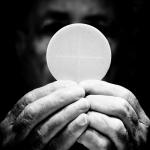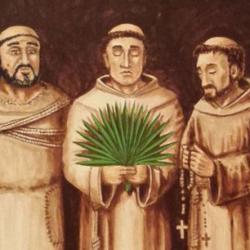Some time ago during a conference, the speaker shared with us words of Pope John Paul II, that the elderly are the “guardians of shared memory.”
In a world where many of the elderly are cast aside and lose their sense of purpose, their vocation is to share their wisdom, advice, and guidance with the younger generation. The elderly are able to discover God’s providence and mercy as they reminisce and help the younger generation to do the same. In his 1999 Letter to the Elderly, John Paul II wrote that “to exclude the elderly is in a sense to deny the past, in which the present is firmly rooted, in the name of a modernity without memory.”
I have found in spending time with the elderly of my family and as a priest, the elderly of my parishes, that while the young are inspired by their dreams of the future, the elderly are inspired by their memories from the past. The elderly guard memories that ground and guide families, whole societies and the Church. For this to unfold, the elderly need time and respect, they need to be listened to.
For the young, we need to dedicate time to listen. For the elderly, in particular those of you who are grandparents, share your memories and wisdom with those who are younger. They may not appreciate it now, but they will later.
When I was sixteen years old my grandmother took me to the Jewish cemetery of Lima to visit the tomb of her grandfather. We paused at the cemetery’s entrance to find my great great grandfather’s name inscribed on a plaque of the cemetery’s founders: Hermann Abrahamsohn. As I placed a stone on the tomb, my grandmother began to share about her grandfather who died twenty-three years before she was born. He left Berlin in the 1860s during the German Unification War after receiving an almost mortal shot to the chest. The bullet remained lodged close to his heart, so for the rest of his life, he had to be cautious not to be hit on the chest. In Lima he married, had four children, and opened a cigar store downtown. During the days of carnival leading up to Lent in 1897, Hermann opened his cigar shop for business against his wife’s wishes. While standing outside the store, he was hit by a water balloon close to the heart, he collapsed and died.
Almost 125 years later, I am here to tell this story because my grandmother listened to her elders, and I listened to mine.
Can you imagine those who were present at the multiplication of loaves and fish described in today’s Gospel passage? They must have told their children and grandchildren about it; and they in turn told their children and grandchildren. Knowledge of Jesus’ miracles, his death and resurrection, was at first knowledge shared from one generation to the next by mouth. Eventually the Gospels were written – the Good News that saves us is a message that is passed down and shared, from the elders to the new generation. The Gospel is the greatest wisdom we receive from our elders.
There is a chapel that sits near the northern shore of the Sea of Galilee that marks the area where Jesus invited those listening to him to sit, and had his disciples distribute the five loafs and two fish which fed the whole crowd.
At the foot of the altar of this chapel is a beautiful early Christian mosaic that recalls this event. When you look at the mosaic however, there are two fish and four loafs. Did someone misread the Gospel account?
The placement of the loaf at the foot of the altar is on purpose. The fifth loaf is on the altar itself, and that loaf continues to be multiplied on the altar to feed the crowds that continue to gather at that place. The meaning of the mosaic is not within itself, but rather, the mosaic points outwards… it points to the reality that the multiplication of fish and loaves continues as Jesus gives of himself so that we can be nourished.
The mosaic is a reminder that the Gospel is not static, but rather is it something that is living, and that is lived. Church is not a museum, but rather a place that is alive. It is a place where we share in the faith of the many who have gone before us, including our own family members whose faith we share.
The wisdom of our ancestors in faith continues to be present here, drawing us to the mystery of the Eucharist; of Jesus present among us, who feeds us along the way, as we journey toward eternal life.
Picture used from here.













